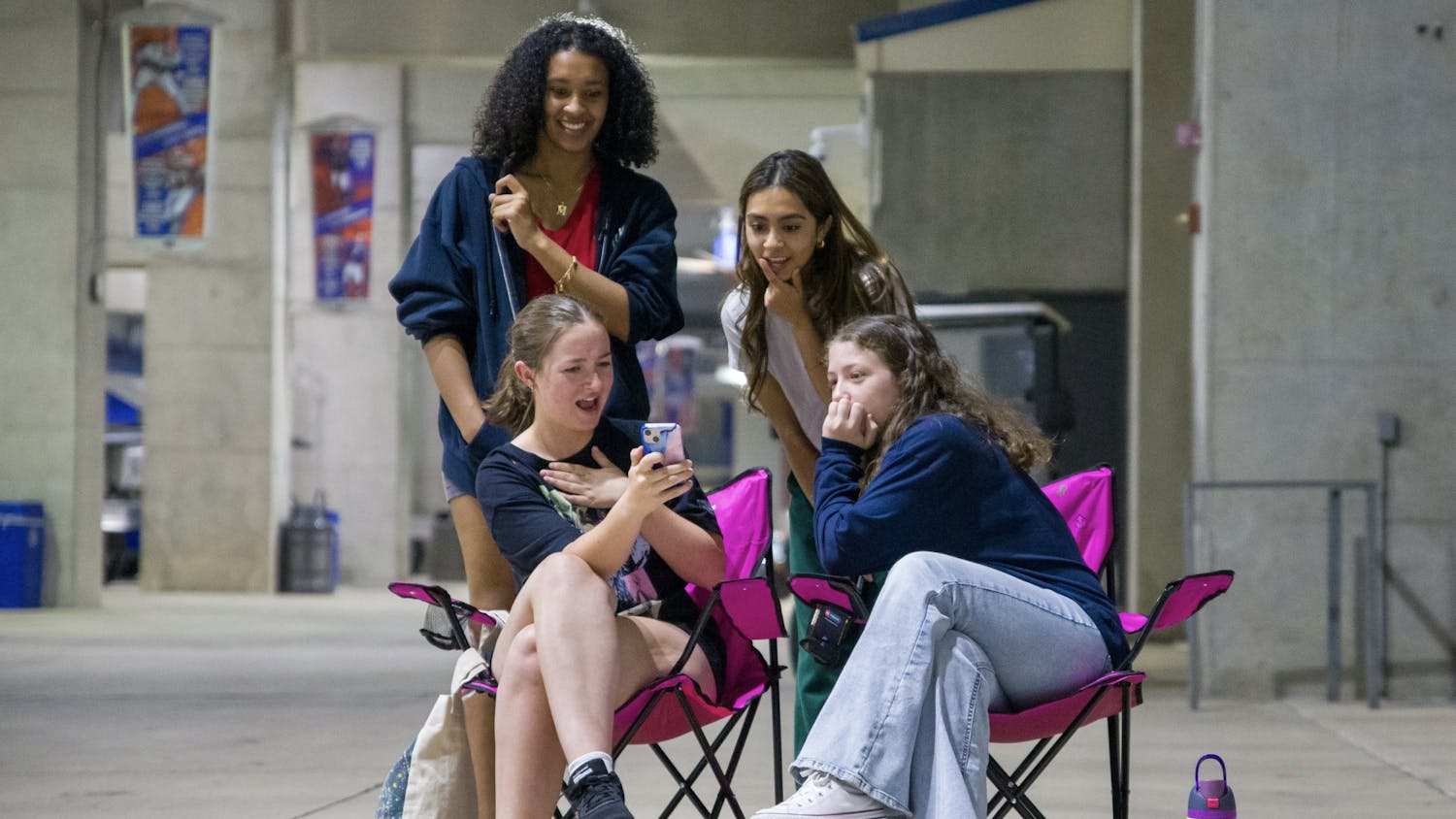Last week, Zoe Beiner wrote a column advising the public to “ignore” Israeli journalist Amira Hass’ lecture on Feb. 13 in the Bob Graham Center for Public Service. Beiner clearly didn’t get Amira Hass’ message to the world and instead decided to write an article filled with historical fallacies and misinterpretations about the Palestinian-Israeli conflict.
Beiner left the lecture “in shock and frustration” but failed to recognize Hass’ frustration at the failed peace talks and continuous violence and injustice in the region.
“My desire to live in Gaza stemmed neither from adventurism nor from insanity but from that dread of being a bystander,” Hass wrote in her book “Drinking the Sea at Gaza.” She talked about her experiences as an Israeli, Jewish woman living in Gaza and how she had rights that Palestinians lacked. But because Beiner wants to just focus on the “facts,” let’s take a closer look at her arguments.
First of all, before 1948, the state of Israel didn’t exist and Palestine was a thriving country with an Arab majority. The U.N. proposed a Partition Plan for Palestine in 1947 that would create independent Jewish and Arab states. The Arab League rejected this plan due to the fact that Palestine was a country with an Arab majority. The Arab League argued that creating a Jewish state would violate the rights of Arab Palestinians.
Just imagine if one day the government came to your home and decided to partition half of it to a stranger. Would you agree to give up your property?
During the lecture, Hass asked, “What does it mean to be implicated in a settler colonial society?” She answered, “It is the knowledge, first of all, that wherever I go, just 60 or 50 years ago, there was a thriving community that used to live there and is now dispersed, dispossessed, invisible. It is also the awareness that the privileges that I am showered in as a Jew are being denied for my neighbors and friends in Ramallah or Nablus or Nazareth or Gaza.”
Hass embraced her identity as an Israeli while also recognizing the rights of Palestinians. Her talk ultimately shed some light on those who would like to see real peace and real justice in a land where oppression and occupation are a part of everyday life.
Regarding to the Oslo Accords, Beiner decided to express a biased opinion on the pretense of factual information. It’s hard to take Beiner’s column seriously when she called the Palestinian Liberation Organization (PLO) the Palestinian “Labor” Organization, or when she argues that Jordan participated in the 1973 war. Besides that, on Sept. 13, 1993, PLO Chairman Yasser Arafat and Prime Minister Yitzhak Rabin met in Washington, D.C., and signed the accords in hopes of a peaceful two-state solution in the future. Amira Hass said Israel missed its “golden opportunity” for peace because, instead of withdrawing settlements in Palestinian territories, Israel continued to colonize the land.
Twenty years ago, Palestinian officials were more willing to negotiate and agree with Israel as opposed to today. This is because Israel didn’t follow through with the agreement and annexed a significant amount of Palestinian land.
Beiner mentioned Arafat’s rejection of a two-state solution proposal in 2000 and described the Intifada as a “wave of terrorism.”
The proposal was rejected because it was one-sided and didn’t fairly distribute the land to Palestine. Read the Oslo Accords for yourself; the PLO has recognized Israel, but there isn’t parallel recognition by Israel of a Palestinian state.
Also, in September 1995, Israel and the PLO signed the Interim Agreement (known as Oslo II) that states: “Neither side shall initiate or take any step that will change the status of the West Bank and the Gaza Strip pending the outcome of the permanent status negotiations.”
By continuing development of settlements, Israel not only violated the agreement but also signaled to the Palestinians that negotiations are futile. The Second Intifada is a direct result of this policy. Therefore, it’s not the PLO that should be blamed for objecting the two-state solution.
From 1993 to 2000, the number of Israeli settlers doubled. Given that, how could one expect the Palestinians to believe that Israel seriously aspired for a two-state solution? Palestinians started to demonstrate and protest for justice. Israel defense forces killed about 300 Palestinians before any Palestinian suicide bombings against civilians occurred. Please refer to www.btselem.org for exact numbers.
Contrary to Beiner’s accusation, Hass didn’t justify any type of violence in her lecture and consistently opposed any arms. She did however say that nonviolent resistance is the best way to overcome oppression and correlated the Palestinian-Israeli conflict to the apartheid in South Africa.
To those who argue that Israel is a democracy, it’s only a democracy for the Jewish inhabitants of the land. Israel controls the territory between the Jordan River and the Mediterranean Sea. In this territory millions of Palestinians have no civil rights.
In the West Bank, only the Jews can elect the power that controls the country. Only the Jews are free to move back and forth from the West Bank to pre-1967 Israel. Water is allocated disproportionately based on ethnic criteria. There are “Israeli only” streets that would lead Palestinians to be imprisoned if found on them.
These elements made many argue for similarities between the South African apartheid and Israeli system of control. Even the Arab minority living within Israel is treated as second-class citizens.
The last point I’ll discuss is the separation wall or “security fence.” While I do agree that the wall has reduced the amount of attacks, it also serves another purpose. Hass described the wall as an “annexation wall.” Hass said, “More than 30 percent of Jerusalem’s Palestinian lands have been confiscated and transferred to the benefit of Jewish settlers.” If you take a look at the map of Israel-Palestine on Israeli human rights organization, Bt’ Selem (www.btselem.org/separation_barrier/map), you’ll see that the wall doesn’t follow the green line. It’s placed in strategic locations that cut off large portions of Palestinian land, which results in Israeli annexation of the land and new settlement building.
All in all, Hass came to UF in order to provide a different perspective on the Palestinian-Israeli conflict. We constantly hear the one-sided arguments in the media about Palestinians being “terrorists” and unwilling to accept Israel.
The fact, is Israel is unwilling to accept Palestine as a state. Palestinians have lived under Israeli occupation for over 60 years now. Israel is legally a state through the U.N., and there’s no room to say, “Israel needs to be removed.”
What we can say is Israel needs to restore the human rights of Palestinians, remove the separation wall along with the checkpoints and allow Palestinians the right to return to their homes and give reparations to the displaced refugees.
Ideally, I’d love to see a thriving Israel alongside a thriving Palestine. We’re all humans, and we deserve to be treated as such. Hass taught me that there’s still hope for peace, but only with real justice.
Mohammad Tina is a food science and human nutrition senior and the president of Students for Justice in Palestine at UF.





